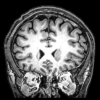I came across a post from an individual on another forum stating he used it for 8 months and it seemed to cure all his anxiety (see below). Does anyone or has anyone used L-theanine for prolonged periods? If so, do you still use it and what are the benefits? If you stopped, why did you stop? Its relaxing and mood uplifting effects are above par of anything else I've taken recently. I'm wondering if anyone's suffered rebound anxiety or major tolerance from long term use.
http://neurotalk.psy...read192621.html(post truncated)
I’ve been doing a lot of online research around something I’ve been taking for 8 months now. I would like to know others experiences with it.
The name of the supplement is L-theanine. I started taking it due to GABA not being strong enough to treat my anxiety on its own. It was after this point that about 6 months later I realized something. L-theanine has long-term positive effects from what I could tell.
Slowly but surely my mood has improved, my attention span increased, and my anxiety all but been forgotten. Now my weight has begun to drop from the lack of stress in my mind. What I’d like to know from all of you is what anybody who has been taking L theanine long term what its like for them? Has anyone had similar encounters? From what I can tell L theanine could potentially be a possible cure for a lot of my problems however I am not certain due to lack of scientific evidence.
My personal opinion on why a lot of my symptoms of what I’m dealing with are going away is due what is called neuroplasticity. Long term brain changes. I am doing a number of treatments that show signs of Neurogenesis as they call it. You can read about them farther down.
I have actually spoken to a friend that took this and from he said it did similar things to him. He ultimately stopped taking it because after it “cured” his anxiety it started doing the “reverse” and making him very sleepy instead of very awake. Ultimately he and I are both under the same impression. L theanine can long term cure certain illnesses.
http://www.reddit.co...with_ltheanine/
Hey all,
Background: I've suffered with anxiety since early childhood. Partway through college, I was diagnosed with anxiety with secondary depression; my particular kind of anxiety was very much the panic attack kind, versus the slow burn kind. I went on Lexapro and Ativan briefly, and did some Cognitive Behavioral Therapy, which got me in to a place where I could function fairly highly. I've been unmedicated for ~4 years since then, and have gotten by fairly successfully by white-knuckling. However, my work has gotten more difficult, and I've been looking for ways to reduce distraction from anxiety.
Theanine?: I was looking for ways to improve my sleep (insomnia issues, exacerbated but not entirely caused by anxiety) and stumbled across the existence of L-Theanine. What is L-Theanine? When people compare coffee and tea, tea is often described as a relaxing beverage (This should seem really odd, because tea, as a whole, is a stimulant.) This is because of the presence of L-Theanine, another psychoactive compound, in (especially green) tea. It has the effect of making you calm, without sedation; it's particularly good for taking the edge off stimulants like coffee, and is highly recommended in the nootropics community.
Effects on my anxiety: I've been fairly wowed by this substance. Now, there's no such thing as a miracle cure, so don't get your hopes up too much. BUT: for my particular kind of anxiety, which seems to be very visceral and fight-or-flighty, this stuff has a huge effect. I have issues with intrusive thoughts/rumination: I'll remember some faux pas from a decade ago, and be so shocked and horrified by it that I'll have a physical response. Theanine seems to blunt the physical response, which has had the effect of reducing how often I have these intrusive thoughts. Some kind of conditioning mechanism seems to be at play there. In general, I feel very "chill" while under the influence of this substance; it's much harder to get me physically worried about anything. My attention has benefited quite a bit, probably secondary to anxiety reduction.
I also had to quit caffeine because of its anxiety-/depression-inducing effects. Taken with theanine, however, those effects are largely absent. This is great, because decaf just doesn't taste the same.
Warning: Anecdotally, I've seen a few people mention they've had terrible rebound anxiety upon ceasing use of theanine. I don't think I have this issue, but more experimentation is warranted.
Some people do seem to develop tolerance, probably of the psychological variety, to theanine's effects. I think I'm one of them, so I've been cycling off on weekends. (Based off what research I've seen, you should not develop physical tolerance to theanine.)
Some people get/feel absolutely nothing from theanine. Beyond the basic "everyone responds differently to psychoactives", I think that different types of anxiety will respond to different types of intervention. Mine seems to be responding very well to this kind.
Conclusion: If you anxiety sounds anything like mine, I highly recommend you (at least) try this stuff. It's available OTC, as a supplement. I personally am currently using Suntheanine, which comes in 150mg capsules. I take 3-4 a day: 1 around breakfast, 1 around lunch, and 1 a little later. Sometimes the lunchtime one gets taken with breakfast as well. The fourth is for occasional help falling asleep.
From that post, it seems it may be useful for treatment of PTSD.
On the other side of the coin was this topic on Reddit (the original post is gone): Here to warn the community that I've experienced debilitating rebound anxiety when taking l-theanine. It was 100 percent this substance. Quit a week ago and back to baseline. Theanine is going in the trash.
So back to my earlier question. Does anyone here have experience with using theanine for more than a few months?

























































